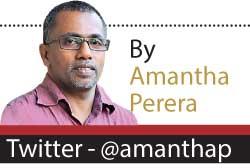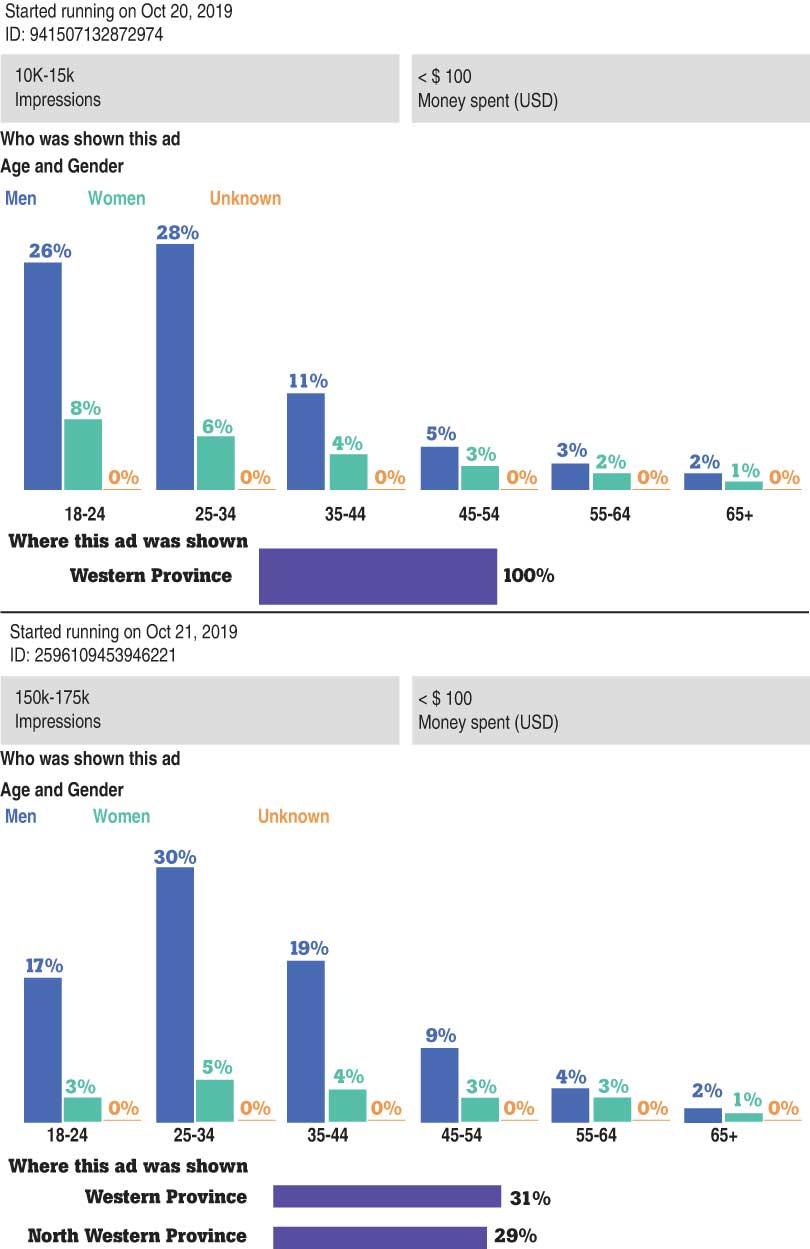23 Oct 2019 - {{hitsCtrl.values.hits}}
 Presidential poll will become the all-consuming topic soon, if not already. Last week, when I spent some time in Colombo speaking to a lot of journalists on fake news, I was told it was not a new phenomenon.
Presidential poll will become the all-consuming topic soon, if not already. Last week, when I spent some time in Colombo speaking to a lot of journalists on fake news, I was told it was not a new phenomenon.
Sri Lanka used to have its own kala pathara and kata katha that spread word of mouth. It took time. The change now is kata katha spreads almost at the speed of light, from one mobile screen to another, someone I spoke with told me candidly.
This is no minor issue like linda langa sangamaya of the past. What can be posted can create mayhem. The country is also tense and the slightest jolt leads to racial and communal tension. Ironically, ten years after the end of the war, Sri Lanka’s ethnic fault lines have not been this fraught ever.
This week, Facebook made available details of ad demographics for Sri Lanka, something that was not available last week
Facebook, which is the largest social media platform in the island, has been the only social media platform that has taken note of the fake news threat. It held a meeting and an awareness session for media executives and journalists last month and will hold a similar session this week. All good people expect that Facebook does not want anything from these meetings reported, even when the latest event is organised by a newly-minted national organisation promoting investigative journalism. This will be even less than a glorified press conference unless some journalists who attend the latest meeting decide to ignore Facebook and local organisers’ unethical request for a gag and report. No one breached the gag the last time.
When reports including this column did reveal details of Facebook’s ongoing interactions, Natasha Jog, Manager Elections South Asia at Facebook wrote a guest column for this newspaper. Most of what was detailed was known beforehand but Facebook did say it had increased its Sinhala moderation capacity without giving details.
Facebook has been in dialogue with the Elections Commission as well. What we know is that Facebook has told the commission officials that it would initiate a ban on political advertising when the ban on such propaganda related to the presidential poll comes into effect in the first week of November. The Elections Commission has also indicated that public complaints of election law violations on the platform would be conveyed to the social media giant for action. However, we do not know more details on this. Facebook told some journalists at the Elections Commission that what it was following on was on its action plans in India and Indonesia which officials said were not fully-successful but had proved effective.Another contentious area is Facebook ads. There has been major criticism on how Facebook defines a politician or political ads. What is available in Sri Lanka is ad history, meaning we can see the ads placed by politicians or parties. What we can’t see and what is available in countries like India and the US are details on who is funding the ads.
One Sri Lanka organisation AFRIEL is planning to monitor 100 Facebook pages with a dedicated volunteer group of 14
This week, Facebook made available details of ad demographics for Sri Lanka, something that was not available last week. What this feature allows is for information on how, where and who saw the ads.
Facebook also released a slew of new features aimed at the next US elections.
One Sri Lanka organisation AFRIEL is planning to monitor 100 Facebook pages with a dedicated volunteer group of 14. The group will be looking for fakes and disinformation and plans to convey any such finding directly to the Elections Commission. The aim is that the commission would then get Facebook into taking action. However, again, details remain sketchy at best.
(The writer is currently pursuing a Masters by Research at CQUniversity, Melbourne on online journalism and trauma.)

25 Oct 2024 43 minute ago
25 Oct 2024 1 hours ago
25 Oct 2024 2 hours ago
25 Oct 2024 3 hours ago
25 Oct 2024 3 hours ago